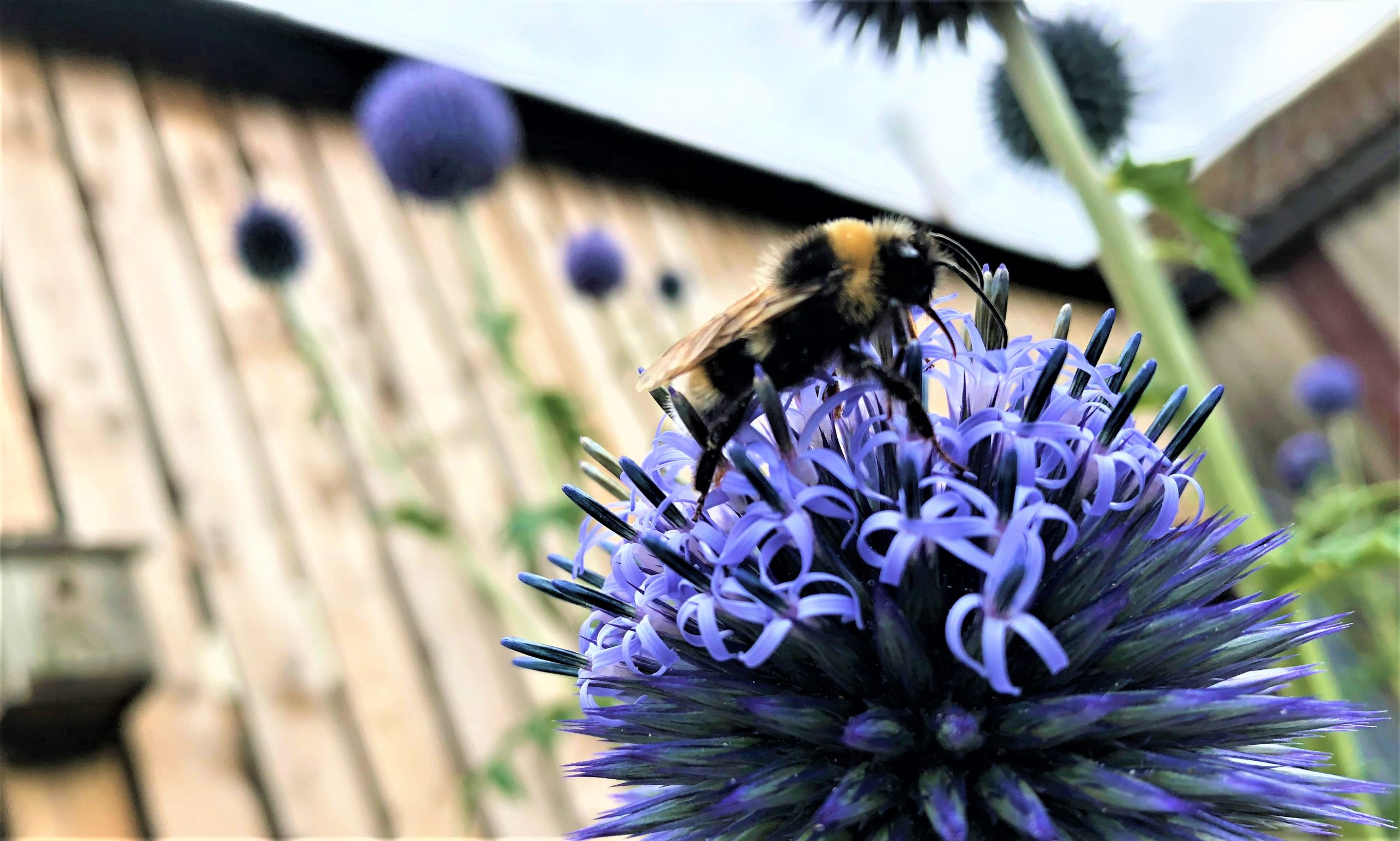Springtime this year has been very difficult for the bees. The dramatic changes in temperature and rainfall during April and May have delayed the honeybee colonies’ development. At one stage, nectar was coming in and things looked good, then cold easterly winds kept the bees at home. They needed to preserve their brood nest temperature just as birds need to keep their eggs constantly warm.
The bumblebees also started off well with queens establishing their nests in a variety of places. Queen bumblebees hibernate during winter just as queen wasps do. In spring, stimulated by daylight lengthening and warmer temperatures, the queens seek out a safe place to nest. Their favourite places are in bird nesting boxes or compost bins. Invariably they choose boxes with old bird nesting material from last year. The queens will make a small nest and her first daughters help to build up the family. They are usually happy if left alone and disappear by mid-summer and rarely return to the same site next year.
We have received a lot of calls about bumblebees this year and have advised callers that they are best left alone as they rarely bother anyone or cause structural damage to properties. All species of bee are very efficient pollinators giving gardeners and growers free pollination services. There would be very few fruits or seeds without the bees to give this service. If you have a bumblebee nest, enjoy watching their comings and goings at a safe distance and feel lucky that they’ve chosen to be with you for this season. Bumblebees are in decline, as are many other species of pollinators, so we must look out for them. The large fluffy queens can be seen and heard in late March collecting nectar and pollen from Crocus and Snowdrops. Their nests develop to the size of a small ball and, unlike the honeybee, they do not store honey. Honeybees on the other hand store honey for their winter food but, being the amazing creatures that they are, they invariably produce more than they need to see them through the winter months. It is this surplus that a beekeeper will take – but that’s a process for another article!
Enjoy the bees!

